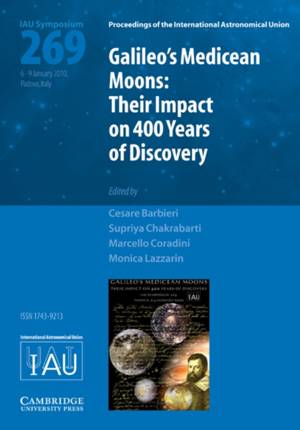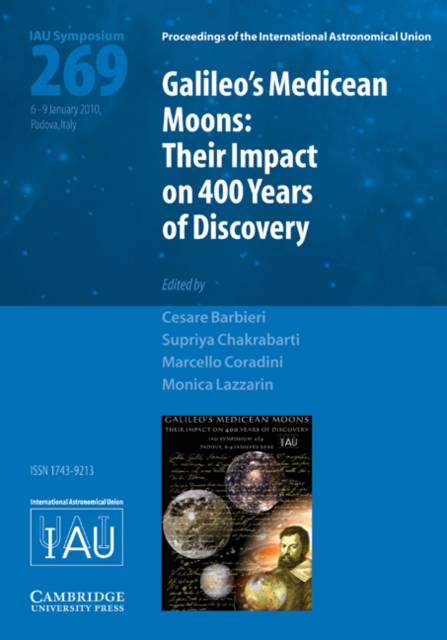
Bedankt voor het vertrouwen het afgelopen jaar! Om jou te bedanken bieden we GRATIS verzending (in België) aan op alles gedurende de hele maand januari.
- Afhalen na 1 uur in een winkel met voorraad
- In januari gratis thuislevering in België
- Ruim aanbod met 7 miljoen producten
Bedankt voor het vertrouwen het afgelopen jaar! Om jou te bedanken bieden we GRATIS verzending (in België) aan op alles gedurende de hele maand januari.
- Afhalen na 1 uur in een winkel met voorraad
- In januari gratis thuislevering in België
- Ruim aanbod met 7 miljoen producten
Zoeken
Galileo's Medicean Moons (IAU S269)
Their Impact on 400 Years of Discovery
€ 129,95
+ 259 punten
Omschrijving
IAU Symposium 269 celebrates the 400th anniversary of Galileo Galilei's discovery of the Medicean Moons, Jupiter's four largest satellites, exploring the impact his findings have had on science and the humanities. Galileo's instrumental discovery and his belief that the planets and moons in our Solar System could be habitable worlds encouraged a deeper understanding of our place in the Universe. Today, ongoing space missions to Jupiter's moons, our own Moon, Mars, Saturn, and Enceladus, reveal our continued fascination with the possibilities of alien life, but this time with a focus on potential host sites for primitive life forms. These critical reviews examine our present knowledge of the Jupiter system, and consider how future space missions and improvements in telescopes will bolster the contemporary vision of our Solar System, of the many known extrasolar planetary systems, and of life forms beyond the Solar System.
Specificaties
Betrokkenen
- Uitgeverij:
Inhoud
- Aantal bladzijden:
- 296
- Taal:
- Engels
- Reeks:
Eigenschappen
- Productcode (EAN):
- 9780521195560
- Verschijningsdatum:
- 25/11/2010
- Uitvoering:
- Hardcover
- Formaat:
- Genaaid
- Afmetingen:
- 175 mm x 249 mm
- Gewicht:
- 657 g

Alleen bij Standaard Boekhandel
+ 259 punten op je klantenkaart van Standaard Boekhandel
Beoordelingen
We publiceren alleen reviews die voldoen aan de voorwaarden voor reviews. Bekijk onze voorwaarden voor reviews.








